- Home
- Michael Buckley
Attack of the BULLIES Page 11
Attack of the BULLIES Read online
Page 11
“Easy breezy,” Miss Information said.
“But at great personal risk to my health and well-being, I have to insist that you not do this,” Dr. Rajkumar said.
“PREPARE THE TIGERS!” Miss Information yelled.
“Please, I beg you. What you want to do could have very nasty side effects. If you go into the past and change something, there is no way of predicting the ripple effect it will have on the present. Let’s say you cause an accident that kills someone—hypothetically, say the grandfather of Alexander Fleming—”
“Who?” Tessa asked.
“The man who discovered penicillin. What if you accidently killed his grandfather? Hundreds of thousands—maybe even millions—of people would be dead because he never invented the vaccine.”
“Attention, kids, do not kill Alexander Fleming … OK—anything else?”
“Yes! Changes aren’t always so straightforward. Any little thing could change the course of human history. The simplest action could literally destroy the world—stepping on an ant, causing a traffic accident, stealing someone’s parking spot—all of these things could be tied to much bigger, much more important events. Cutting someone off in traffic could literally be tied to the birth of another human being. There’s just no way of knowing.”
“Consider us warned,” Miss Information said. “Now, let’s give my new toy a spin. Benjy, have you compiled that list I asked you for?”
“I have,” the robot said as it zipped into the room. “On August 16, 1987, Edgar Escala—Julio Escala’s grandfather—visited Washington, D.C., on vacation from Mexico City and made a stop at an immigration office to get information on becoming a United States citizen. Public records show that Edgar signed in at the visitors’ center at 8:05 A.M. on the date in question. There is a ninety-seven percent chance that this experience directly lead to Mr. Escala moving his family to the United States.”
“Well, we’re going to have to find a way to change his mind,” Miss Information said as she stepped onto the time machine’s platform.
“I’m downloading the information, time, and coordinates into your machine as well as all the information I collected about the other NERDS and their families,” Benjy chirped.
Dr. Rajkumar blanched. “This is your plan? Making sure those kids were never born?”
“You got it! Kids, let’s go,” Miss Information said, dismissing the scientist and ushering Tessa and the others onto the Sit ’n Spin platform. Tessa didn’t like the idea of erasing someone, but she couldn’t leave her father in jail. She and the others turned the big wheel at the center of the machine, and it started to spin.
“I don’t feel so good,” Snot Rocket said as the wheel spun faster and faster.
“Yeah, I’m not sure about this,” Tammy cried as the air grew very cold and crackled with electricity.
Tessa felt very nauseous herself, and it wasn’t just from the spinning. The machine was making her insides feel like a bottle of soda shaken by a mischievous child. She was sure she was going to pop.
“I want to get off,” Funk whined. “We have to stop this!”
But Miss Information ignored his plea and the wheel turned even faster. The underground lair vanished and a series of images of people and places appeared: a woman slapped a man in a nightclub, a teenager danced at a rock concert, a little boy played kickball, a dog pulled his owner down the street, a soldier hurried across a war-torn lanscape, a man and a woman got married with a little white dog at their feet. They seemed to come from all different time periods. Could the rest of the team see them, too?
And then Tessa saw her father creeping into her bedroom at the White House, sitting down next to her, and watching her sleep.
“Dad?”
There was a final flash and he vanished along with the other visions, and Tessa was startled to find that she and her team were no longer in Miss Information’s secret lair. Somehow they were in the middle of a busy Washington, D.C., street, and there was a bus barreling right at them.
TOP SECRET DOSSIER
CODE NAME: PIZZA FACE
REAL NAME: DENISE BERNAKE
YEARS ACTIVE: 1984–88
CURRENT OCCUPATION: ROCKET SCIENTIST
HISTORY: DENISE WAS ONE OF
THOSE POOR CHILDREN WHO SUFFER
FROM EARLY-ONSET PUBERTY. ONE
DAY SHE WAS A SMILING, SWEET
LITTLE GIRL AND THE NEXT SHE
HAD A FACE FULL OF ZITS. NO
AMOUNT OF ACNE MEDICINE SEEMED
TO HAVE ANY EFFECT, BUT HER SAD
AFFLICTION WAS TURNED INTO A
TREMENDOUS ASSET WITH THE HELP
OF MODERN TECHNOLOGY.
UPGRADE: USE YOUR IMAGINATION,
KID. WHAT COULD A GIRL WITH A
FACE FULL OF ERUPTING PIMPLES
DO? JUST THINKING ABOUT WRITING
IT DOWN MAKES ME GAG.
Heathcliff needed to take his mind off his parents and his heartbreak, so he decided to turn his attention to the other dilemma—namely, filling in the holes of his Swiss cheese memory. He was convinced that Benjamin was the key to unlocking the mystery, so he worked with a feverish passion, replacing each tiny chip and wire while the rest of the team had one of their stupid secret meetings in a booth at Marty Mozzarella’s.
He sat in a dark corner of the restaurant and tested circuits and installed a new cooling system. Then he worked on Benjamin’s gyroscopic flight simulator, which gave the robot its ability to fly. Finally, he snapped the ball shut. There were still functions to reconnect and tests to administer, but surely none of them were vital to Benjamin’s operation. He pushed the button on the side of the orb and listened as it hummed to life. A bright red light glowed inside, a signal that there was a serious internal error, but then the light changed to Benjamin’s familiar blue, followed by some loud clicking and beeping and then finally …
“Heathcliff?”
“Benjamin! Boy, am I glad to hear your voice. You were damaged, but I repaired you, and I’ve got a million questions.”
“Ms. Holiday is—”
Benjamin’s blue light turned red and there was a loud POP! Black smoke seeped through the casing, and the ball fell to the floor.
Heathcliff cried out. How could he have been so stupid? His eagerness to know the truth had gotten the best of him, and now he’d probably made Benjamin worse. He picked up the robot and gingerly opened the cover. Much of the circuitry he had installed was melted.
“Any luck?” Jackson asked. The boy stood a few feet away, watching Heathcliff curiously.
Heathcliff grunted. He might have been lonely, but he wasn’t about to get chummy with his archenemy. A million atomic wedgies flashed in his memory.
“That’s great. We could use Benjamin’s help. And we could use yours, too,” Jackson said.
Heathcliff wanted to tell him to jump off a bridge. He wanted to laugh in his face. He wanted to spit at him. How dare Jackson come to him for help when he and the others shunned him every day? Oh, the indignity! He felt the rage coursing through every vein, and in that anger was something familiar, something comfortable—like a pair of fluffy socks or his stuffed penguin. That anger would protect him from heartbreak and humiliation.
“Unless you still need a little time on your own,” Jackson said.
Heathcliff blinked. “You think I want to be alone?”
Jackson shrugged. “To be honest, I wasn’t sure how you felt. I know how I would feel if my dad didn’t remember me and the only thing that would fix him was buried in cement. I’d want to be alone for a while. And then I’d want a friend.”
“You want to be my friend?” Heathcliff asked.
Jackson nodded. “When you’re ready. I know I have a lot to make up for.”
Heathcliff felt the anger drain out of him like water in a spaghetti strainer. He wasn’t ready to throw his arms around Jackson and forgive him, but his armor of hate felt claustrophobic.
“Listen, I know you’re bummed about th
at formula, but the scientist who was working on it wasn’t buried in the Playground. He’s here somewhere, probably making breadsticks or cleaning the grease traps. He can start over. That’s the cool thing about life. If you want, you can start all over. So, can you give us a hand or should I call you a whaa-mbulance?”
Heathcliff smiled. “Lead the way.”
It was late, and the restaurant was closed. The team members were busy working on the various arcade games scattered about the room. Flinch was completely hypnotized by a game called Dig Dug, while Matilda was at a game called Donkey Kong.
“Glad you could join us,” the principal told Heathcliff as he stuffed a fistful of gold tokens into his hand.
Heathcliff found a console called Joust that appeared to be a nonsensical game where knights rode flying ostriches over a river of lava. He sank a coin into the slot and a green light appeared on the screen. Instinctively, he placed his hand on it.
The game vanished, replaced by a list of the computer’s applications. He scanned the list line by line. The game had the most advanced Web-browsing program he had ever seen. He could read through classified materials from the CIA, the FBI, the IRS, and something called Project Blue Book. He could use facial recognition technology, every satellite circling the world, the Hubble Space Telescope, and the onboard computers of the International Space Station. The list went on and on, and for the first time since he had awakened without his memories he felt like a spy—a real spy!
“What’s our priority?” Heathcliff asked.
“We have to find Miss Information,” Ruby said. “She’s within a hundred miles of the White House.”
“How do you know that?”
“I did some calculations on that flying bus of hers. A machine that size and shape could only hold so much fuel. They could get about five hundred miles out of it, assuming it flies as fast as a passenger plane.”
“They flew west, too. I’ve been searching satellites for an appropriate landing site,” Duncan said.
“There’s an easier way to track them,” Heathcliff said. He called them over to his game, where he’d accessed a government weather-tracking site. “We can track their exhaust. The fumes left behind will stay in the air for at least a day afterward.”
He showed them a satellite image of Washington, D.C., at the time of the attack, then ran it through a pollution filter until a green band crossed from one side of the screen to the other.
“Like a trail of bread crumbs,” he said. “We need a higher-res picture, but once I get that, this will tell us exactly where the ship went.”
The principal nodded. “That’s good work, Hodges. Keep us in the loop.”
Heathcliff’s proud grin felt like it was stretching his face so wide it might not return to normal.
“If you find her, we can go home,” Duncan said.
“Who wants to go home?” Flinch cried while munching on cold pizza.
“I’ll automate the search. If we’re lucky, we might have an address by tomorrow morning,” Heathcliff said. “What else can I do?”
The principal smiled. “You can help Ruby with surveillance. Miss Information and Tessa must have been captured on video somewhere. It might help us narrow down their location faster.”
“And what are you going to do, boss?” Matilda said.
“I’m going to make some calls. You and your families are going to need new identities. I have friends in the FBI who will do me some favors.”
Heathcliff took a chair and sat next to Ruby, who was busy on a Ms. Pac-Man machine. “Thanks,” he said.
Ruby cringed. “For?”
“Letting me help. Most of the time you guys won’t even look at me. Nice to know I’m not invisible.”
“You’re not invisible,” Ruby said.
“Are you OK? You look worried.”
“I’ve decided not to tell my parents where I am. It’s going to hurt them a lot, but it’s going to keep them safe, too. I feel terrible,” she said as she flipped through several screens of footage.
“I’m sorry,” Heathcliff said. “Families are important, and it’s hard when you can’t protect them. Especially from something you’re responsible for.”
Ruby looked at him suspiciously. “Jackson told you what you did?”
He shook his head. “No, but I know it was something bad.”
He silently prayed that she would deny it, but she didn’t. Instead, she turned her attention back to the screen.
“Are you monitoring wiretaps, too—you know, cell phone chatter?”
“Yes, and I haven’t heard a peep,” she said. “But I suspect Ms. Holiday’s too smart to use a phone.”
“You’re probably right,” Heathcliff said. There were so many cameras to monitor. It was like trying to find a specific seashell on a beach. “I can make an adjustment that will make all of this much easier.”
Ruby stepped back and let him work. Heathcliff pushed buttons so furiously the game rattled. Being a part of the team again gave him a joy and excitement that made him feel like a pot boiling over with water. When he was finished, the screen had three images on it: Ms. Holiday, with and without the mask, and Tessa Lipton.
“This surveillance program has facial recognition, but it’s sort of lame.”
“It’s state-of-the-art,” Ruby objected.
“I’d hardly call what it does ‘art.’ It takes six facial features and tries to pinpoint them from grainy video. I’m stunned it ever works. I increased its parameters and now it’s searching for one hundred fifteen thousand different elements, as well as vocal cues. I’m accessing Ms. Holiday’s employee files so we can add in her favorite foods, authors, television shows, actors, whatever. We can link these things to the search and cross-reference receipts from every purchase in the world. Getting more detailed actually makes it simpler. Tessa Lipton is even easier. She’s famous. Sooner or later they are going to be seen. They’re girls.”
“So?”
“Girls like to shop.”
“That’s sort of offensive,” Ruby grumbled. “And not true! Not every girl in the world likes to shop.”
“Not every girl. But those two? Absolutely. Ms. Holiday never wore a cardigan twice, and from what I’ve read, Tessa has a thing for high-end fashion,” Heathcliff said.
“You’ve read that Tessa Lipton likes fashion? Where?”
“In People magazine.”
“When do you read People magazine?”
“I’ve been locked up without much to do for three months. I’d read Ladies’ Home Journal if you gave me a copy. There are a few other things we can add to the search, too,” Heathcliff continued as he jammed the joystick back and forth. “Why just video? We can add newspapers, magazines, and social media sites. Our targets could appear in the background of someone else’s photos and this ‘state-of-the-art’ program wouldn’t catch it.”
“I think you’re going a bit overboard,” Ruby said, nudging the boy aside. He could tell he was making her uncomfortable. She still didn’t trust him.
Suddenly, there was an alert and an image appeared on the screen.
“We’ve got a hit!” Ruby said.
It was a black-and-white newspaper photograph of a car crash on a street across town. In the background, they could see Ms. Holiday in her mask, along with Tessa and the rest of the kids who had attacked them the day before.
“They caused some kind of accident,” Heathcliff said. “But wait—this can’t be right. This newspaper article is decades old.”
Ruby glanced at the newspaper’s masthead. It was published August 16, 1987—more than twenty-five years ago.
“I don’t understand. The hard drive should have no problems with this,” Heathcliff said defensively.
“Well, whatever you did is making it screwy,” Ruby said. “Is this one of your schemes?”
“Schemes?” Heathcliff said.
Ruby eyed him closely. “Never mind,” she said as she jumped up from her chair. “I need something to eat.”
Heathcliff’s heart sank. So much for being a member of the team.
If it weren’t for Loudmouth, the BULLIES’ trip through time would have been cut very short and had an extremely painful ending. When they were jerked out of the time stream, they found themselves in the middle of the street with a bus barreling down on them. Tammy huffed and puffed, ranting about boys not liking girls with glasses and overdue library books. Her voice slammed into the bus, bringing it to a violent stop.
But the BULLIES were not out of danger yet. A car careened out of the bus lane and headed straight at them. Snot Rocket fired an explosive booger at the ground, which created a pothole. The car drove into it headfirst.
A siren wailed and a police car arrived on the scene. A chubby officer got out, his eyes wide and his mouth in a surprised O.
Thor slammed his fists on the hood of the cop car and it folded in half like a taco. The cop drew his weapon, but Funk was already sending a cloud of noxious green air at him. Overcome by the stench, the policeman dropped to his knees.
Miss Information smiled. “Welcome to 1987, where there is no Wi-Fi, iPods, Facebook, or texting. Most people still buy music at a record store.”
“What’s a record store?” Tammy said.
Miss Information shook her head and pressed a button on the time machine. She watched it collapse and morph into a box she could fit into the palm of her hand. “What a nice feature!”
Benjy floated above her head. “Many of my functions are inoperable, including telecommunications. The satellites needed don’t seem to exist.”
“But you still have our list of targets, correct?” she asked.
“I do,” Benjy said. “In fact, the first one was on that bus.”
Miss Information turned her attention to the shaken passengers, who now stood in groups on the side of the road. She spotted a tall, lean elderly man with brown skin and a bristly white mustache. He was rubbing his neck as if he had whiplash.

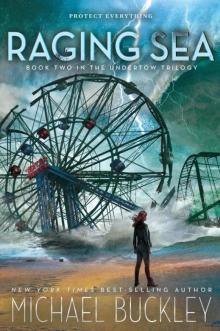 Raging Sea
Raging Sea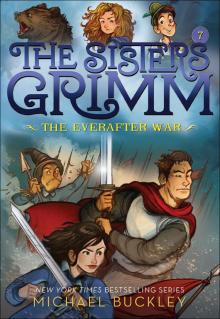 The Everafter War
The Everafter War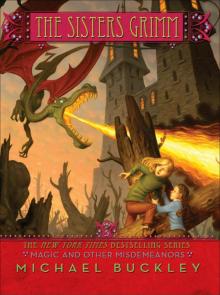 Magic and Other Misdemeanors
Magic and Other Misdemeanors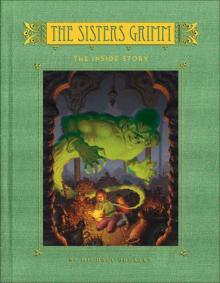 The Inside Story
The Inside Story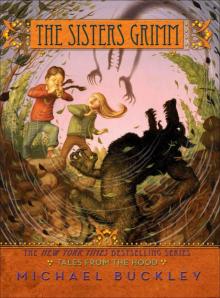 Tales From the Hood
Tales From the Hood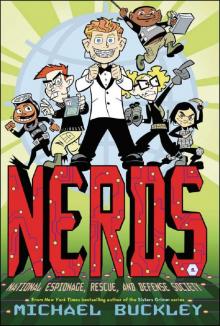 NERDS: National Espionage, Rescue, and Defense Society
NERDS: National Espionage, Rescue, and Defense Society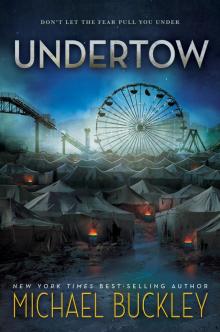 Undertow
Undertow The Problem Child
The Problem Child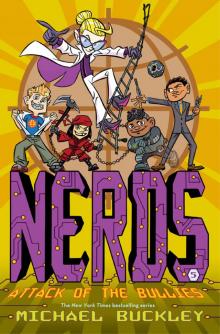 Attack of the BULLIES
Attack of the BULLIES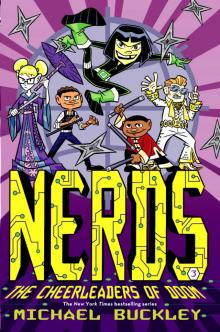 The Cheerleaders of Doom
The Cheerleaders of Doom Heart of the Storm
Heart of the Storm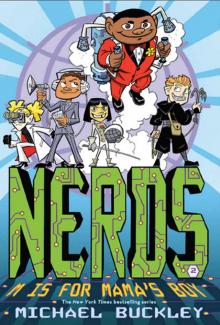 M Is for Mama's Boy
M Is for Mama's Boy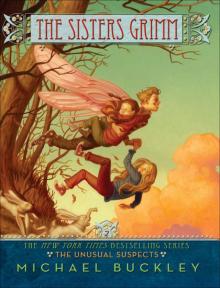 The Unusual Suspects
The Unusual Suspects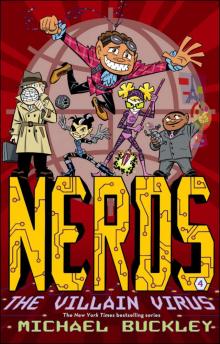 The Villain Virus
The Villain Virus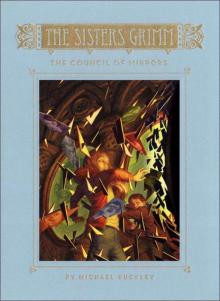 The Fairy-Tale Detectives
The Fairy-Tale Detectives The Unexpected Has Happened
The Unexpected Has Happened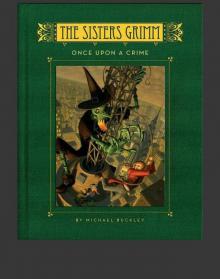 Once Upon a Crime (The Sisters Grimm, Book 4)
Once Upon a Crime (The Sisters Grimm, Book 4)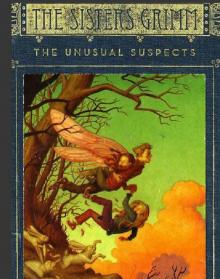 The Unusual Suspects (The Sisters Grimm, Book 2)
The Unusual Suspects (The Sisters Grimm, Book 2)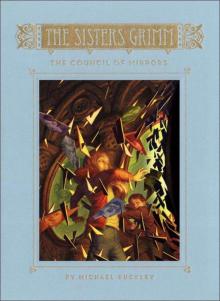 The Sisters Grimm: Book Nine: The Council of Mirrors (Sisters Grimm, The)
The Sisters Grimm: Book Nine: The Council of Mirrors (Sisters Grimm, The)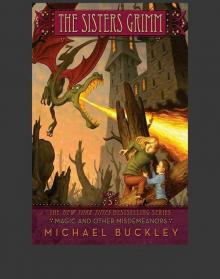 Magic and Other Misdemeanors (The Sisters Grimm, Book 5)
Magic and Other Misdemeanors (The Sisters Grimm, Book 5) The Problem Child (The Sisters Grimm, Book 3)
The Problem Child (The Sisters Grimm, Book 3)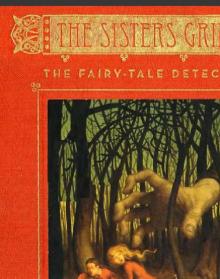 The Fairy-Tale Detectives (The Sisters Grimm, Book 1)
The Fairy-Tale Detectives (The Sisters Grimm, Book 1)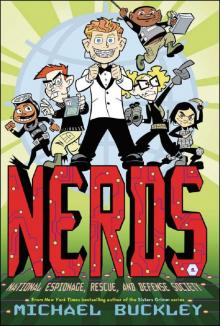 National Espionage, Rescue, and Defense Society
National Espionage, Rescue, and Defense Society